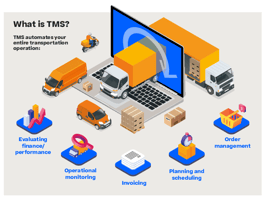As you are aware, there are recurring signals in your export business that happen daily, weekly, monthly and quarterly that lead to opportunities to improve your operations. Seizing these opportunities are the key to building a world class export organization using industry best practices from the top supply chain operators on earth. Based on the latest research, the following business scenarios are causing Logistics Coordinators to research transportation management systems using industry leading research.
Top Use Cases
There are several trigger events that may cause Logistics Coordinators to research transportation management systems (TMS) based on industry-leading research on transportation management software purchases.
Here are a few examples:
- Increase in shipping volume: As the volume of goods shipped increases, it can become difficult for logistics coordinators to manage transportation logistics manually. A TMS can help to automate and optimize logistics operations to handle the increased shipping volume.
- Cost savings: Companies may seek to implement a TMS to reduce transportation costs, improve carrier selection, and increase freight visibility and control.
- Inefficient processes: Logistics coordinators may seek to improve inefficient processes by implementing a TMS that can optimize logistics operations and streamline workflows.
- Customer demand: Customers may demand greater visibility and control over their shipments, which can be facilitated by a TMS.
- Risk management: Logistics coordinators may seek to mitigate risk by implementing a TMS that provides greater visibility and control over transportation operations and helps to ensure compliance with regulatory requirements.
Industry-leading research on transportation management software purchases can help Logistics Coordinators identify the leading TMS providers and solutions, assess their capabilities and features, and make informed decisions about which system is best suited for their specific logistics needs and goals.



Leave a Comment